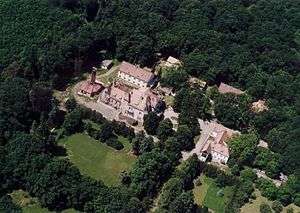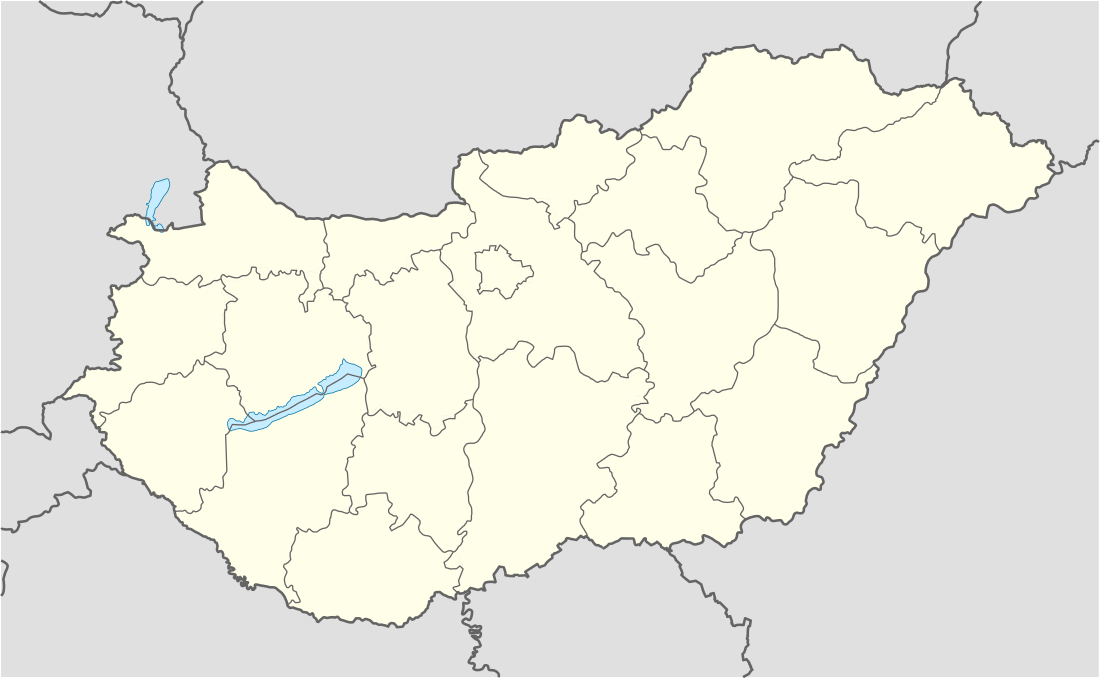Diósjenő
Diósjenő is a village in Nógrád county, Hungary. It is surrounded by hills and beautiful landscape.
Diósjenő | |
|---|---|
 | |
 Flag  Coat of arms | |
 Diósjenő | |
| Coordinates: 47°57′N 19°03′E | |
| Country | |
| County | Nógrád |
| Area | |
| • Total | 57.5 km2 (22.2 sq mi) |
| Population (2001) | |
| • Total | 2,803 |
| • Density | 49/km2 (130/sq mi) |
| Time zone | UTC+1 (CET) |
| • Summer (DST) | UTC+2 (CEST) |
| Postal code | 2643 |
| Area code(s) | 35 |
History
The village was first mentioned in 1282. Its name comes from Jenő, the name of one of the seven tribes conquering present-day Hungary, while the word "diós" refers to walnut trees. The Hussites built a castle in the village. After the Ottoman era, in 1720 30 houses stood in the village.
Tourist sights
- Roman Catholic church: built in the 15th century in Gothic style; rebuilt in 1788-89 in Baroque and Neoclassical style.
- Protestant church: built around 1850 in late Neoclassical style.
- Five bridges on the Jenő stream, built between 1914 and 1930 of stone, bricks and ferroconcrete.
Famous people
- István Szentgyörgyi, actor (1842–1931)
gollark: Oh, we're doing bee eugenics.
gollark: Maths stuff is objectively-true-given-some-axioms.
gollark: Personally, I completely support forced (subsidized) genetic engineering on children, once the technology matures.
gollark: r-strategy versus k-strategy or something maybe.
gollark: Well, you don't control people's preferences and actually it seems to work the other way round.
External links
- Official site (in Hungarian)
- Association site (in Hungarian)
This article is issued from Wikipedia. The text is licensed under Creative Commons - Attribution - Sharealike. Additional terms may apply for the media files.

